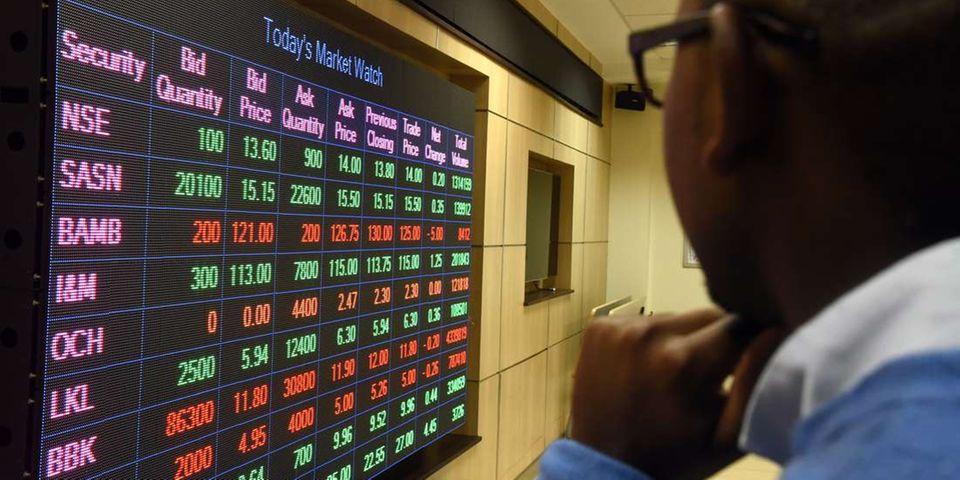On Tuesday, the Nairobi Stock Exchange (NSE) resisted the political uncertainty that followed the opposition’s rejection of the results of the presidential election, split the Kenya electoral commission and gestured a battle in the Supreme Court.
A third of stocks moved ahead, earning the NSE Sh2.7 billion to conclude trading at Sh2.294 trillion. This occurred on a day when a comparable number of firms recorded price decreases.
- On Tuesday, a third of stocks moved ahead, and the NSE earned Sh2.7 billion to conclude trading at Sh2.294 trillion
- The number of transactions increased from 978 to 1,068. In contrast, the number of shares that changed hands decreased from 9 million on Monday to 7.4 million
- The Nairobi Stock Exchange maintained its strength due to the increased engagement of local investors after foreign investors began to withdraw their funds around the middle of May
The number of transactions increased from 978 to 1,068. In contrast, the number of shares that changed hands decreased from 9 million on Monday to 7.4 million.
NS’s strength due to the increased engagement of local investors
Trading took place on Monday before Deputy President William Ruto was confirmed the winner of the presidential election, which occurred amidst scenes of chaos and the rejection of the results by four election agency commissioners.
As a result of Odinga’s pledge to legally contest the election results, it is possible that it could be several weeks before a new president is inaugurated into office. This has sparked worries of unrest against the backdrop of rapidly increasing food prices and massive levels of public debt.
Analysts had predicted that there would be a sell-off of shares, which was anticipated to drag the NSE down to new lows.
The Nairobi Stock Exchange maintained its strength due to the increased engagement of local investors after foreign investors began to withdraw their funds around the middle of May.
Kevin Ngige, an equity trader at Genghis Capital, said there was a short dead cat bounce, showing the optimism among the investors. He said that local investors continue to lend support to the exchange.
A temporary increase in asset values following an extended period of fall or a bear market is known as a dead cat bounce.
Odinga has called the results of the presidential election that took place on August 9 a “travesty,” and he has warned that Kenya’s democracy is in for a protracted legal crisis.
The remarkable chain of events has stoked fears of uncertainty on par with those that emerged in the wake of contested polls in 2007 and again in 2017. The address by Odinga was given after the market had already closed for the day.
A press conference was organised by four of the seven electoral commissioners who, on Monday, refused to approve the election results and gave their reasons for doing so only minutes before Odinga began speaking.
They claimed that Chebukati had ignored them and announced conclusions that were riddled with “mathematical nonsense and defied logic.”
After the elections that had just taken place, the National Security Advisory Committee had earlier in the morning released an update stating that the country was secure and at peace.
Throughout the night, Odinga’s supporters clashed with police and torched tyres in the Kisumu and Nairobi’s Kibera slums; however, peace had been restored to the streets by Tuesday morning.
63 different counters were traded on Tuesday
On Tuesday, out of the 63 different counters traded on the NSE, 21 different shares decreased in value, and an equal number of shares stayed steady.
While trading was taking place at the bourse, there was a minor decrease in the prices of significant companies such as Safaricom, KCB Group, Cooperative Bank, and East Africa Breweries Limited (EABL), which frequently drive the NSE. This resulted in the market capitalisation remaining the same.
The total value of these four stocks, popular among investors from other countries, decreased by Sh3 billion, while other stocks, such as Britam, Total, and Sasini, increased in value.
The Kenyan stock market dismissed any worries that there would be nerves typically associated with closely contested elections in Kenya and increased its value by an average of 16 billion shillings per trading session over the course of the three days leading up to Tuesday’s polling day.
Local investors have been buying at a time when their counterparts in other countries are selling and shifting capital to western markets, which have raised their interest rates in an effort to combat higher levels of inflation.
In addition to the total of Sh763.98 million in net outflows recorded the previous week, foreign investors withdrew a net amount of Sh514.14 million from the NSE during the most recent trading week.
Read Kenyan elections and NSE, investors to adopt precautionary behaviour
